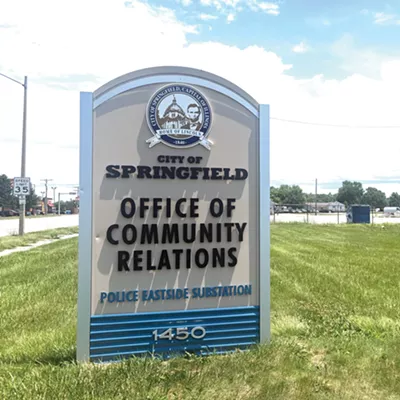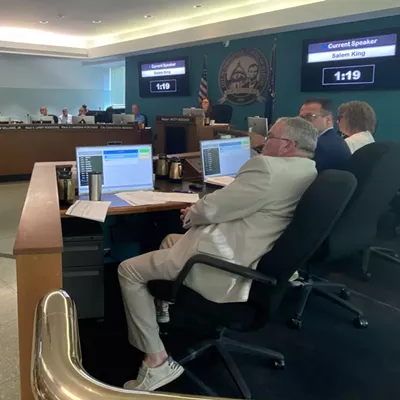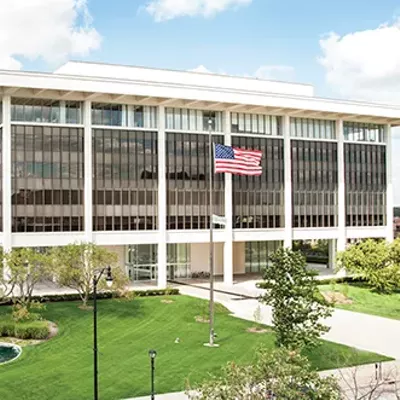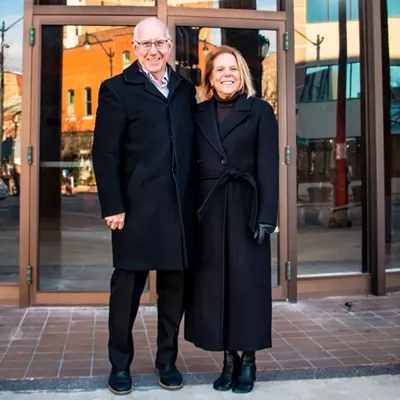BY MONICA STABILE
Employment in Illinois’ medical marijuana industry has more than doubled in one year, resulting in millions of dollars in annual economic output for the state.
One industry group says the program is capable of even more.
The Illinois medical cannabis pilot program has generated $147.8 million in annual economic activity, in addition to creating more than 2,700 direct and indirect jobs so far in 2017, according to the Medical Cannabis Alliance of Illinois. That represents a 50 percent increase from 2016, and MCAI says that as more patients become eligible for treatment under the program, jobs and the economy will grow.
Emeka Jackson-Hicks, mayor of East St. Louis, explained during a legislative panel in Springfield that the medical cannabis cultivation center in East St. Louis created 26 well-paying jobs and has changed their economic landscape for the better.
“The medical cannabis industry has not only brought much-needed jobs and job training to East St. Louis, but the players are active civic partners,” Jackson-Hicks said. “East St. Louis has embraced progressive treatment solutions, and they are becoming the lifeline for our community.”
Bret Bender, general manager of Maribis Springfield, a medical cannabis dispensary which opened earlier this year, said the medical cannabis industry encounters many obstacles because the federal government hasn’t legalized cannabis.
The industry experiences economic losses when filing their taxes because marijuana is considered a Schedule 1 substance by the U.S. Drug Enforcement Agency, meaning there’s no medicinal use and it’s highly addictive. It falls under a tax code that forbids cannabis companies from deducting expenses from their income, except the cost of goods sold. This causes cannabis companies to be taxed at a higher rate than other businesses, he said.
“We as cannabis companies currently cannot write off a single expense as a business expense,” Bender said. “We are not paying taxes on our profits; we are paying taxes on our revenues, which leads to more expensive products for patients.”
A lack of financial institutions that can do business with the marijuana industry presents another issue because banks are heavily audited by the federal government, advocates say.
If marijuana was moved from a Schedule 1 drug to Schedule 2, which categorizes drugs with a potential for abuse but with accepted medical use, banking opportunities would open for the cannabis industry.
“That bank can basically charge whatever fees it wants to because it knows that cannabis companies have nowhere else to turn to in Illinois,” Bender said.
Bank of Springfield is the only bank in Illinois that does business with the medical cannabis industry, he added.
When the Springfield Business Journal reached out to Bank of Springfield for comment, Peter Graham, the vice president of business development, said the financial institution is legally bound by federal privacy laws and regulations and cannot release customer information.
The Medical Cannabis Pilot Program became effective in 2014 under Gov. Pat Quinn, a Democrat, and was later extended to 2020 by Republican Gov. Bruce Rauner.
Currently there are 19 active cultivation centers that grow and distribute its products to 53 medical cannabis dispensaries in Illinois. In April 2017, the state issued two permits to open cultivation centers. Under Illinois law, there can be up to 22 cultivation centers and 60 medical cannabis dispensaries.
The Rauner administration did not respond to multiple interview requests from the Springfield Business Journal seeking comment on whether the governor supported expanding the number of medical conditions to be treated with medical cannabis.
Medical cannabis advocates say the best route to ensure that the marijuana industry becomes an economic engine in Illinois is to increase the number of eligible patients that can purchase medical cannabis.
“Our ability to create jobs and provide an even greater economic impact to all the communities in which we operate is far from its maximum potential,” said Ross Morreale, chairman of MCAI.











